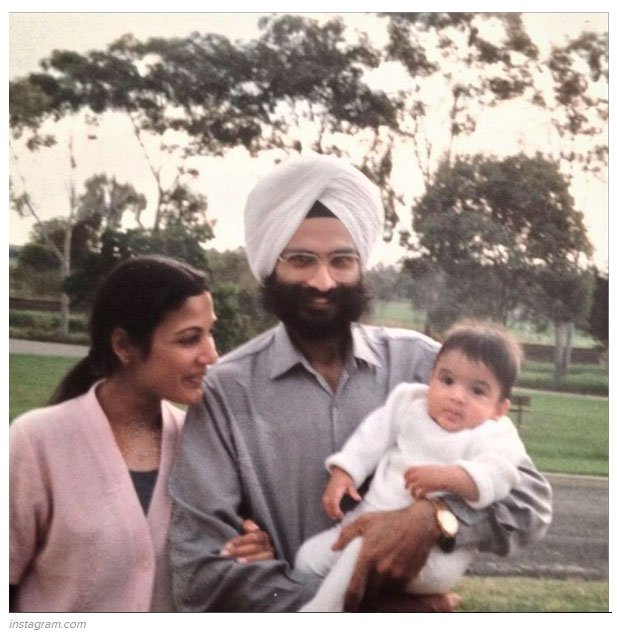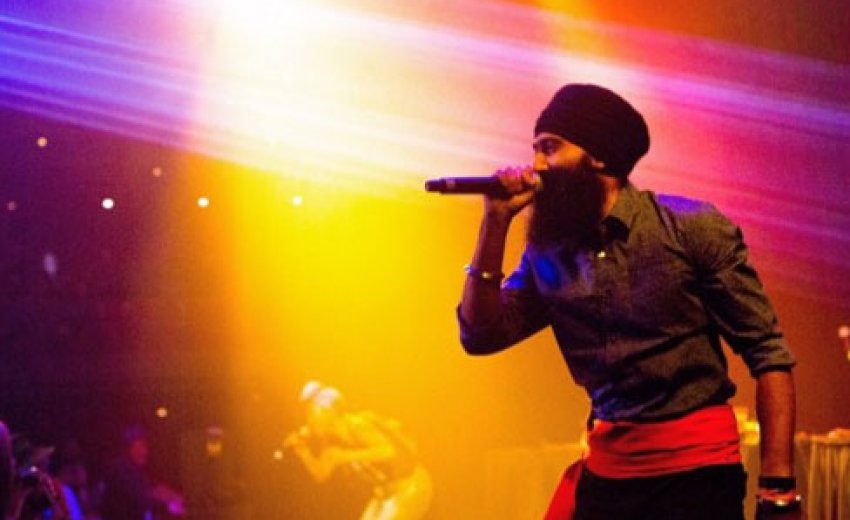
L-Fresh the Lion wrote his best-known song, “Survive”, in 15 minutes at a friend’s gig.
The show was an a cappella hip-hop performance for Sydney’s Muslim community and when L-Fresh arrived, he realised he was the only non-Muslim there. As he watched the acts, he marvelled at how a community can be joined together by one common cause and the sense of unity in the room. He went home and tried to think about his own identity as a Sikh and how he reacts when he sees another Sikh in public.
“The song, however, is not about religion,” L-Fresh told BuzzFeed News during a recent interview. Instead, he said, “Survive” highlights the universal connection of all human beings: “All it takes is one small thing for a connection to be recognised and for another’s humanity to be appreciated.”

L-Fresh is on the cusp of something big. During a recent tour in London, he appeared and performed on BBC radio. As an activist and ambassador for All Together Now, an Australian charity to that works to combat racism, he is part of an ever-growing movement of musicians using their talent to give voice to their social conscience.
While L-Fresh is certainly an anomaly in Australia, globally he’s not alone. There’s a small but growing movement of Sikh hip-hop artists looking to use the genre to get their voices heard: Humble the Poet in Canada, Baagi and Hoodini in the US – all Sikhs who grew up in displaced communities and have turned to rap to vent.
“L-Fresh the Lion is an important artist for the children of the diaspora,” said Humble the Poet, a Canadian-born Sikh rapper, elementary school teacher, and frequent collaborator with Sikh YouTube star Lily Singh. “He’s an amazing wordsmith who’s using his artistic abilities to share stories and a message that connects with this global generation.”
With his as-yet-untitled second album dropping in 2016, L-Fresh hopes to continue intertwining his love of music with his desire to inspire love among his wider community. “I hope to continue to build positively through music,” he said, “to go wherever music takes me.”

L-Fresh was born Sukhdeep Singh in Liverpool, southwest Sydney, to Sikh Indian migrant parents. He has mixed feelings about his parents’ move to Australia. Sikhs make up 0.4% of the Australian population, and the population of Sikhs in Western Sydney, in particular, is small.
Being targeted by anti-Muslim prejudice has been a serious issue for Sikhs in the last few years. Earlier this year, a number of verbal attacks led to the Australian Sikh Association distributing leaflets titled “The Sikhs, an Introduction” around Western Sydney. Sikhs have also been targets as part of wider historic violence directed at Indian-Australians, most notably in 2009 during a series of attacks on Indian students in Australia.
“I grew up in a country where opportunities are endless but where challenges are very present – Australia has always had its issues with waves of migration,” L-Fresh said. “Racism has run deep since colonisation and is still present in many ways. I’ve felt it throughout the course of my life, as have many people of Indigenous or migrant backgrounds.”
At school in Western Sydney – before he discovered rap and hip-hop – L-Fresh thought he would be a cricket player. But after two nasty injuries, he found he could no longer muster the same enthusiasm for the sport. He started getting involved with his school’s music programme. One teacher even helped him record his first demo CD.
“Mr Zallo offered to come in early on days before school,” he said. “So we would be at school at 7am recording music. He showed me how to be a session engineer and how to mix down my own music properly.”

Sukhdeep Singh became L-Fresh after he finished high school during a trip to the Golden Temple in Amritsar, India. “It was in a single moment of realisation at the Golden Temple that ‘the Lion’ was born,” he said. “Why blend in when you are born to stand out?”
His rap alias is a constant reminder to himself to stay loyal to this – Fresh is an acronym that stands for “Forever Rising Exceeding Sudden Hardships”, and Lion is an English translation of “Singh”, which, he said, represents “power, courage, bravery, honesty, sovereignty, passion, and hunger”.
He went to university, gaining an arts degree and a law degree and then went on to work in the community and human-rights sectors, assisting marginalised young people and refugees, work he continues in his partnership with All Together Now.
In 2014, he released his debut album, One, and his second album is due in 2016. He’s currently signed to Elefant Traks.

L-Fresh said Tupac’s “Changes” is the song that really shaped him most as a musician. He was moved by the track’s emotional resonance and wanted to create music that matched that sort of depth.
His first song, “World of Discrimination”, is about an idealised world without racism. Another track, “Get Mine”, includes the line: “They tell me to go home but I come from here / I can see it in their eyes they don’t want me here.” After sharing the video for the song on his website, he wrote a personal essay about the concept behind the video, pinpointing the behavior of world leaders as the reason why racism and discrimination is so prevalent.
He said a song on his upcoming album deals with how people judge him on first glance. “The song is called ‘Be Cool’. It’s like before I open my mouth, there are many who have put me into certain stereotypes. I then talk about the looks of fear I get whenever I step on a plane. It can be draining. I have a lyric in that song that said, ‘Try living in a home where every day you’re made to feel like a visitor.’”
He said that his parents support his music career, but from time to time he has to remind that he has two degrees to put their minds at ease. He said his parents don’t listen to hip-hop, but the traditional Sikh music they listened to at home when he was young had a huge impact on him.
L-Fresh was afraid that widespread discrimination he’s experienced all his life would continue into his career, but he said this has not been the case. “I’ve never once faced discrimination from my artist peers within the hip-hop community. Hip-hop embraces originality. I just didn’t know it or feel it until later on.”
What’s more, he doesn’t wish to describe himself as any sort of victim due to his identity. “I stand out because I know what I stand for,” he said.
Beyond his upcoming album release, the rapper’s focus still lies with his community. He said he intends to continue using his position as a musician to reach as many people as possible and shape their world-view.
He offered advice to anyone seeking to drive change: “Start with one person. That, in and of itself, can make a huge, positive impact. In a positive and healthy community, there is no ‘other’. There is just ‘us’. We are in it together. We acknowledge that we may all be different. But our differences don’t concern us; instead they strengthen us.”
